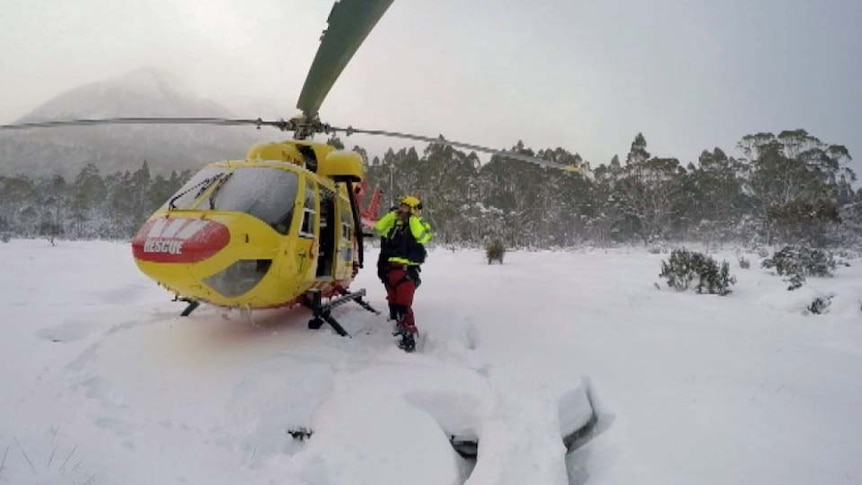Australia Weather News

Be prepared to turn back or change plans if severe weather is forecast or eventuates, Tasmania Police advises. (Supplied: Rotorlift)
With snowfalls predicted overnight in alpine regions, Tasmanian authorities are urging those planning hikes in the wilderness to be prepared, citing the high number of rescues of people ill-equipped for the "harsh" conditions.
The Tasmania Police search and rescue helicopter crew has been called out to "almost 200 missions in the 2024/25 financial year", with a number of these rescue incidents "avoidable had people undertaken better planning and preparation", Tasmania Police said.
One incident involved two walkers who underestimated the terrain and distance of a walk, believing they would complete the track in 6 hours, police said.
The pair was rescued by the helicopter crew after spending a night in "near-freezing conditions".
A similar incident involved a "family with a small child that spent two nights huddled together in blizzard conditions in the state's north".
The group was unprepared and "only equipped for a day's walking", police said.
When the weather turned, they became disoriented and lost.
Remote search and rescue personnel located the group the next day and provided medical assistance until the rescue helicopter could attend and extract the group.
Bushwalkers have been advised that snow "as low as 500 metres" is expected during Wednesday, and "hazardous conditions are expected to occur in parts of the Western and Central Plateau forecast districts".
Tasmania Police Search and Rescue Acting Inspector Paul Johns urged people to adequately plan and prepare before they ventured into the Tasmanian outdoors.
"At any time of the year, it's important people research their intended trip, have appropriate equipment and that the walk or the track they are attempting is within their abilities and fitness level," he said.
"Tasmania's weather conditions, particularly in our alpine areas, can change quickly.
"In winter, you have added layers of complexity brought on by difficult conditions such as strong wind, rain, sleet and snow: there are much shorter daylight hours, and you can have very cold to freezing temperatures."
Don't leave distress call to 'last minute'
Acting Inspector Johns said it was important that people who felt they were in difficulty did not leave it to the last minute to seek advice or raise the alarm.
"Due to the harsh and inclement weather conditions experienced in Tasmania, there are times the rescue helicopter will not be able to reach certain locations," he said.
"Rescue personnel will be in attendance: however, if you find yourself in a situation where you believe you require assistance, let people or emergency services know as soon as possible.
"Being able to locate people in the wilderness from the helicopter during daylight hours is safer and far less complex than when the sun goes down.
"If, however, you do find yourself requiring assistance at night, a light source of any kind is invaluable. The crew on board the helicopter utilises night-vision goggles which enhance any light source, be it a torch or mobile phone."
ABC